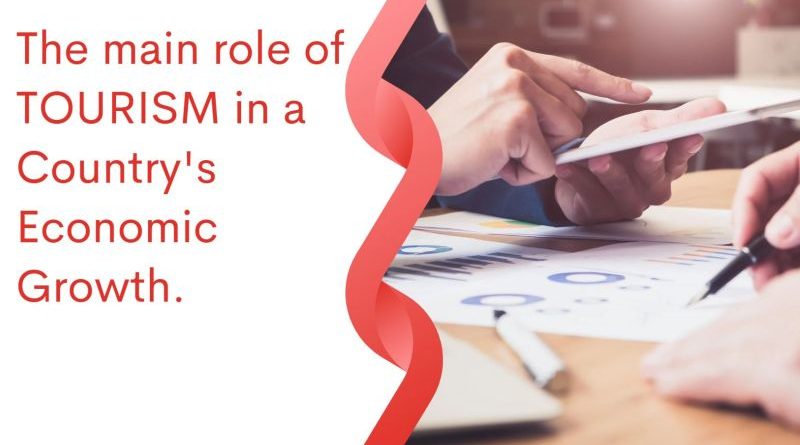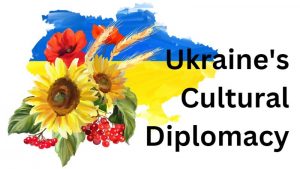The main role of tourism in a country’s economic growth.
Tourism is an important contributor to a country’s economic growth. It generates employment opportunities, earns foreign exchange, and contributes to the growth of infrastructure. Tourism is a diverse industry that covers a wide range of services including transportation, accommodation, food and beverage, and attractions. In this essay, we will discuss the main role of tourism in a country’s economic growth.
Employment Opportunities
Tourism creates employment opportunities in different sectors of the economy. The tourism industry is labor-intensive, and it employs a large number of people directly and indirectly. According to the World Travel and Tourism Council (WTTC), the tourism industry supported 319 million jobs in 2018, which was 1 in 10 jobs globally. In addition, the tourism industry is a major employer of women and young people, who often face high unemployment rates. For example, in Africa, the tourism industry employs more women than in any other sector. Thus, tourism has the potential to reduce unemployment and promote gender equality.
Foreign Exchange Earnings
Tourism is a major source of foreign exchange earnings for many countries. Tourism generates foreign exchange through the spending of tourists in the host country. Tourists spend money on accommodation, food and beverage, transportation, attractions, and shopping. According to the World Tourism Organization (UNWTO), international tourism receipts reached US$1.7 trillion in 2018. The top 10 countries in terms of international tourism receipts were the United States, Spain, France, Thailand, the United Kingdom, Italy, Australia, Germany, Japan, and Macao (China). Foreign exchange earnings from tourism can be used to finance imports, pay off debts, and invest in infrastructure development.
Infrastructure Development
Tourism can contribute to the development of infrastructure in a country. The development of tourism requires the provision of basic infrastructure such as roads, airports, ports, and telecommunication networks. In addition, tourism can stimulate the development of cultural and natural attractions, which can be used to attract tourists. The development of tourism infrastructure can create multiplier effects on the economy. For example, the development of a new airport can create employment opportunities in construction, transport, and tourism-related services. The construction of new hotels can also create employment opportunities in the hospitality sector.
Promotion of Local Products
Tourism can promote the consumption of local products and services. Tourists often seek unique and authentic experiences, which can be provided by local products and services. For example, tourists may prefer to eat local cuisine, stay in locally-owned accommodations, and purchase locally-made handicrafts. This can help to promote the development of local businesses and industries. In addition, the promotion of local products and services can help to preserve and promote local cultures and traditions.
Promotion of Cultural Exchange
Tourism can promote cultural exchange between different countries and cultures. Tourists often visit other countries to learn about different cultures and ways of life. This can help to promote understanding, tolerance, and respect for other cultures. In addition, the interaction between tourists and locals can lead to the exchange of ideas and knowledge, which can promote innovation and creativity.
Challenges of Tourism
Although tourism has many benefits, it also has some challenges that need to be addressed. One of the main challenges is the impact of tourism on the environment. Tourism can lead to environmental degradation, pollution, and the depletion of natural resources. For example, tourism can lead to the overuse of water resources, which can lead to water scarcity and pollution. In addition, tourism can lead to the destruction of natural habitats, which can threaten the survival of plant and animal species.
Another challenge of tourism is its negative impact on local communities. Tourism can lead to the displacement of local communities, who may lose their land and livelihoods to make way for tourism development. In addition, tourism can lead to the commodification of culture
and the creation of artificial experiences, which can erode local traditions and ways of life. Furthermore, tourism can create a dependency on tourism revenues, which can lead to a lack of diversification in the economy.
To address these challenges, sustainable tourism practices should be promoted. Sustainable tourism is defined as tourism that takes into account its current and future economic, social, and environmental impacts and addresses the needs of visitors, the industry, the environment, and host communities. Sustainable tourism practices can help to minimize the negative impacts of tourism and maximize the positive impacts.
In conclusion, tourism plays a significant role in a country’s economic growth. It creates employment opportunities, earns foreign exchange, contributes to infrastructure development, promotes local products and services, and promotes cultural exchange. However, the challenges of tourism should not be ignored, and sustainable tourism practices should be promoted to minimize the negative impacts of tourism. Therefore, tourism can be an important tool for economic development, but it should be managed responsibly and sustainably to ensure its long-term benefits.






I was excited to uncover this website. I need to thank you for these time just for this fantastic read!! I definitely liked every little bit of it and I have you saved as a favorite to check out new stuff in your site.
It’s great to come across a blog every once in a while that isn’t the same out of date rehashed material. Fantastic read.